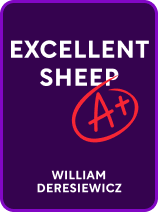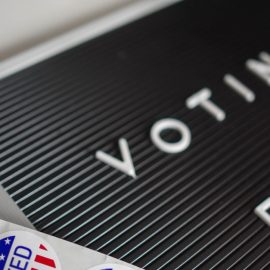

This article is an excerpt from the Shortform book guide to "Excellent Sheep" by William Deresiewicz. Shortform has the world's best summaries and analyses of books you should be reading.
Like this article? Sign up for a free trial here.
What is a liberal arts education? How does it differ from programs that emphasize career development?
According to William Deresciewicz, an ideal college experience benefits both individuals and society. He argues that a high-quality college education is a liberal arts program that nurtures students’ self-insight and equips them with the skills to uphold democracy.
Continue reading to learn what a liberal arts education is and why Deresciewicz thinks it’s ideal.
Why Learn Liberal Arts?
What is a liberal arts education? Deresiewicz claims that the liberal arts prioritize character-building over career development. Programs that emphasize career development teach skills related to a specific occupation. By contrast, liberal arts programs emphasize character development by cultivating students’ character as they study a wide range of subjects, such as literature, biology, and history. Your character includes your values (for example, fairness), the ways you treat others (for example, kindly), and your strengths (for example, communication).
The author clarifies that, although liberal arts programs prioritize character-building over career development, their students still graduate prepared for the workforce. He cites research showing that many employers specifically seek graduates of liberal arts programs because these alumni demonstrate strong problem-solving and relational skills.
(Shortform note: Recent research confirms that the skills students develop in liberal arts programs strengthen their career prospects. When employers make hiring and promotion decisions, they value liberal arts graduates’ collaboration, communication, and analytical skills over the subject-specific skills they developed through their majors.)
| The Evolving History of the Liberal Arts’ Approach to Character-Building Why do liberal arts programs emphasize character development? The reason dates back to these programs’ origins in ancient Greece and Rome. These programs emphasized character development so citizens (free, adult men) could learn how to contribute to civic life. Throughout American history, liberal arts programs have continued to focus on developing students’ citizenship skills through building their character. That said, recently, many liberal arts colleges have made career development part of their mission as well. They’ve started offering career-focused majors (such as business and education) to bring in additional funding and increase enrollment. However, this addition doesn’t mean these schools have reduced their commitment to character-building. Recent research suggests liberal arts colleges develop students’ character even when those students choose career-focused majors. Students from these colleges with career-focused majors and those with traditional liberal arts majors scored similarly on measures that assessed their reasoning abilities, relational skills, and curiosity. These findings suggest that it’s not what students study at liberal arts colleges that builds their character, but rather how they study those topics: in small classes, with the support of approachable professors. |

———End of Preview———
Like what you just read? Read the rest of the world's best book summary and analysis of William Deresiewicz's "Excellent Sheep" at Shortform.
Here's what you'll find in our full Excellent Sheep summary:
- How elite colleges contribute to social inequality and harm students
- The ways that elite schools prioritize profits over teaching
- How governments, schools, and parents can overhaul U.S. higher education






